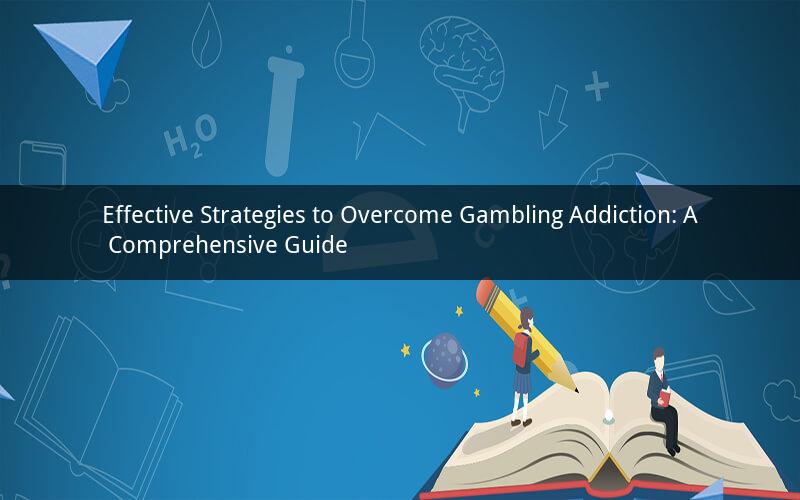
Introduction:
Gambling addiction, also known as problem gambling, is a serious condition that affects millions of individuals worldwide. It can lead to financial, emotional, and social consequences. However, with the right approach and support, it is possible to recover from gambling addiction. This article provides a comprehensive guide on how to recover from gambling addiction, including various strategies and resources available.
1. Understanding Gambling Addiction:
To effectively recover from gambling addiction, it is crucial to understand its nature and underlying causes. Gambling addiction is characterized by an inability to control gambling behavior, despite negative consequences. It often stems from factors such as psychological, social, and environmental influences.
2. Seeking Professional Help:
One of the first steps in recovering from gambling addiction is seeking professional help. Therapists specializing in addiction can provide personalized treatment plans and support throughout the recovery process. They can help individuals understand the root causes of their addiction and develop coping mechanisms.
3. Building a Support System:
A strong support system is essential for overcoming gambling addiction. This can include family members, friends, support groups, or even online communities. Sharing experiences and receiving encouragement from others who have faced similar challenges can significantly enhance the recovery journey.
4. Identifying Triggers and Developing Coping Strategies:
Identifying triggers that lead to gambling relapse is crucial in maintaining long-term recovery. Triggers can vary from personal stressors to environmental cues. Developing effective coping strategies, such as engaging in healthy activities, practicing relaxation techniques, or seeking alternative hobbies, can help individuals resist the urge to gamble.
5. Financial Management:
Gambling addiction often leads to significant financial consequences. Addressing financial issues is an important aspect of recovery. Creating a budget, seeking financial counseling, and taking steps to rebuild financial stability can help individuals regain control over their finances.
6. Building a Healthy Lifestyle:
A healthy lifestyle can contribute to the recovery process. Regular exercise, a balanced diet, and adequate sleep can improve overall well-being and reduce the risk of relapse. Engaging in activities that promote mental and emotional health, such as meditation or yoga, can also be beneficial.
7. Avoiding High-Risk Situations:
To prevent relapse, it is important to avoid high-risk situations that may trigger gambling behavior. This includes avoiding casinos, online gambling platforms, and places where gambling is easily accessible. Developing a plan to navigate social situations involving gambling can also be helpful.
8. Continuing Treatment and Support:
Recovery from gambling addiction is a lifelong journey. Continuing treatment and support is crucial to maintain long-term sobriety. This may involve attending therapy sessions, support group meetings, or seeking ongoing counseling as needed.
9. Learning from Relapses:
Relapses are a common part of the recovery process. It is important to view relapses as learning opportunities rather than failures. Analyzing the causes of relapse and developing strategies to prevent future occurrences can aid in the recovery journey.
10. Celebrating Progress and Milestones:
Recognizing and celebrating progress and milestones is an important aspect of recovery. Acknowledging the efforts made and the achievements gained along the way can provide motivation and reinforce the commitment to long-term recovery.
Questions and Answers:
1. What are the signs of gambling addiction?
Ans: Signs of gambling addiction include an inability to control gambling behavior, preoccupation with gambling, lying about gambling activities, neglecting responsibilities, and experiencing negative consequences as a result of gambling.
2. Can medication help in treating gambling addiction?
Ans: While there is no specific medication for gambling addiction, certain medications may be prescribed to address underlying conditions or symptoms associated with addiction, such as depression or anxiety.
3. How long does it take to recover from gambling addiction?
Ans: The duration of recovery from gambling addiction varies for each individual. Some may experience immediate progress, while others may require ongoing treatment and support for several years.
4. Can support groups be beneficial for recovering from gambling addiction?
Ans: Yes, support groups can be highly beneficial. They provide a safe and supportive environment for individuals to share experiences, receive encouragement, and learn from others who have faced similar challenges.
5. What can family and friends do to support someone recovering from gambling addiction?
Ans: Family and friends can provide emotional support, encourage participation in treatment and support groups, offer assistance with daily tasks, and help create a supportive environment. Educating themselves about gambling addiction can also help them better understand and support their loved one's recovery journey.